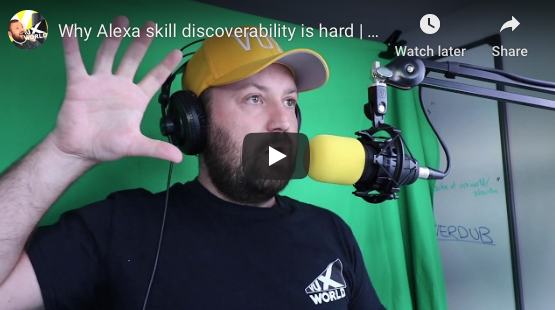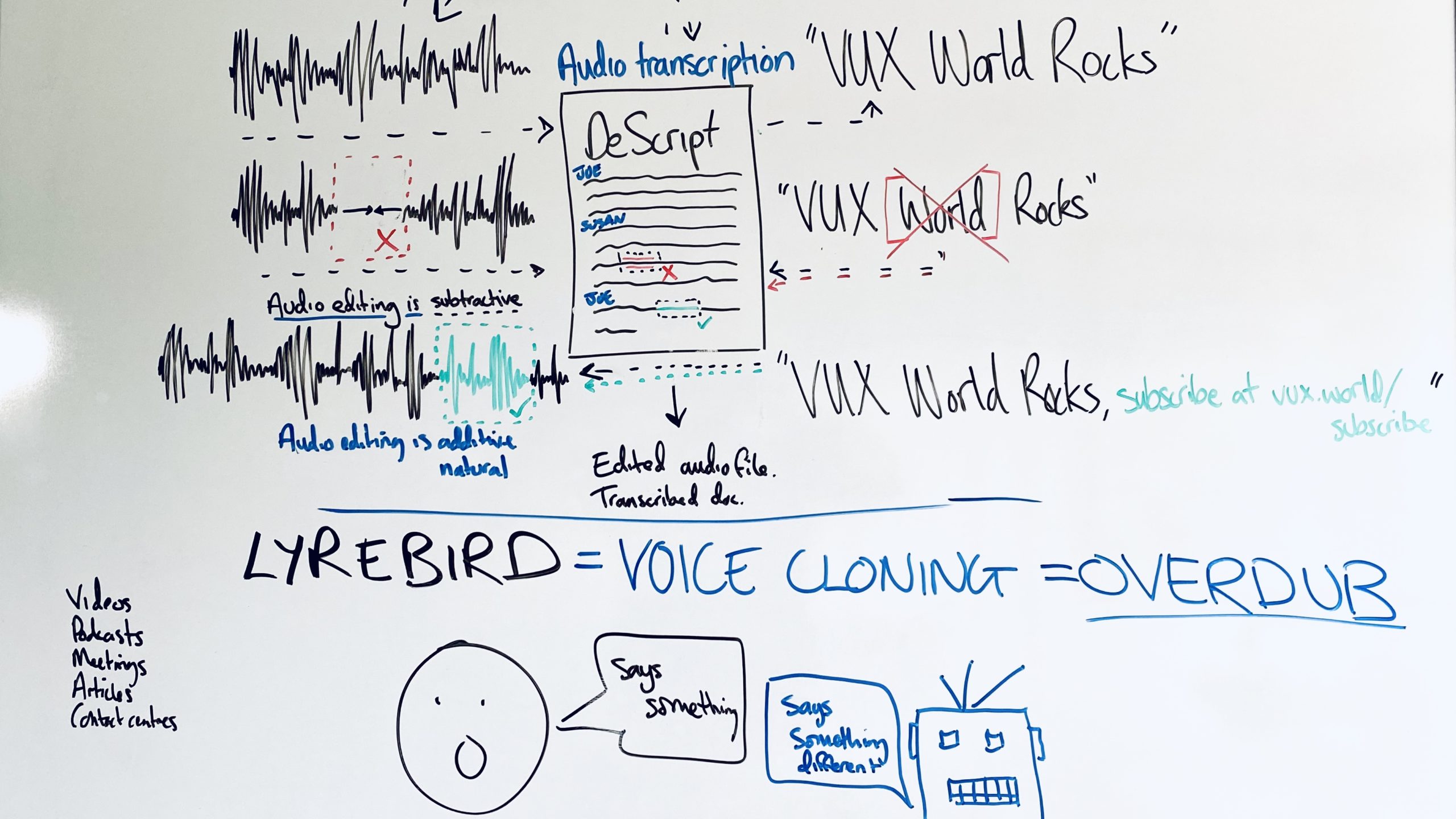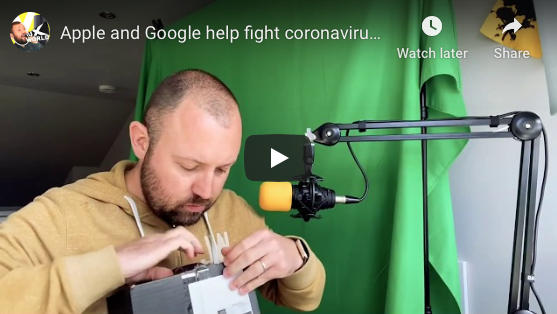Why has Apple acquired Voysis and what does that mean for Siri?
To answer that, we need to take a long walk over to the Whiteboard.
Transcript
To explain the value of Voysis to show why it’s valuable to Siri and Apple, you have to look at the current Voice Assistant platforms as they currently stand.
Things like Alexa and Google Assistant, their NLU, their natural language understanding is very broad. It has a broad understanding and it needs to, because it needs to cater for a whole host of different use cases.
From asking to play games and calendar and productivity tasks, to shopping, to smart home automation, music, general question and answers. It needs to be able to understand a whole load of
general terms used by the general population.
Now, when you’ve got a whole lot of businesses over here, each of these dots being either a business or an individual, who wants to get themselves onto this platform. All of these individuals have different terminologies and different ways of saying things.
So your business sells products that are different to another company’s products. Your services, your lingo, your jargon.
And so what needs to happen, usually, is that these organizations need to try and tell this NLU, this general-purpose NLU, how to understand all of its specific phrases and products and all that kind of stuff.
And what that means is that you need to provide a whole load of sample utterances or sample data to try and get these general NLUs to understand your vertical and your industry.
So everyone is trying to do the same thing, every one of these are trying to train these models in really specific areas.
And its really really difficult to because if someone says to Alexa “find me a kitchen fitter” then for a kitchen fitter, in your industry, you know that that is a person or a service. It’s a company.
Whereas Amazon, if they say “find me a kitchen fitter”, it doesn’t know whether or not it’s a product or whether it’s a tool or whether it’s a business or a person or what and so it’s really difficult to train these general models.
What Voysis does is, instead of you having to take your stuff to it and try and train this general model, Voysis points the other way and Voysis goes to your company and says: Right. Okay, you tell me, show me what your product and services are. You give us that data the actual data, not sample utterances; actual data. The type of data that you use to surface products and services on your website. We will then train our NLU specifically to your business so that when people ask for a kitchen fitter, we know that if they’re on your website, they’re talking about a person or a service. They’re not talking about a tool.
What Voysis also has is an inherent multimodal understanding. Voysis has been spending a long time in the retail sector working with retail websites to add voice search capabilities to websites. And so they understand how voice and screens go together, and they are retail specific. They’re a specialist retail AI company – that doesn’t mean that they have to stick to retail but that’s their pedigree.
So, what does that mean for Siri?
Well, this could potentially give Siri a specific NLU for retail.
This could provide Siri with domain-specific knowledge, retail specific knowledge. It’s an area that Siri isn’t fantastic with but what that will do, is it will give Siri an inherent
understanding of the kind of retail utterances and phraseology that people are using when they’re trying to shop with their voice.
But what it also does is; unlike Alexa or Google Assistant, when you shop for something or ask for a product, what Amazon will do is it will try first of all putting you into amazon.com It’ll try and find it on amazon.com. If it can’t, then needs to select from one of its third party skills in order to give you one skill that might find that product for you.
So if you were to search Amazon for, or ask Alexa for “white Nike trainers under a hundred pounds”, it will try and find it on Amazon. If I can’t find it on Amazon, it will say ‘well, here’s the Nike skill’.
What it won’t do is, it won’t say’ ‘here’s three different skills that all have these exact Nike product for you’. It won’t do that. It’ll only pick one skill at a time.
With Voysis, what Siri will be able to do is potentially open up the back end for retailers to be able to index their product catalog into Siri natively so that when you search Siri for ‘white Nike trainers under a hundred pounds’, it can serve you individual, itemized results within the Siri interface from many, many different retailers, using the one technology, as well as giving it some other inherent capability like being able to deal with compound requests, like ‘white nike trainers under a hundred pound in a size 8’.
That’s the kind of stuff that Voysis have been doing from day one.
And so potentially, what we’ll see with this acquisition, if things go as they could go is that Siri will have a bespoke specific NLU that’s geared toward retail. It will be able to offer retailers the ability to have the NLU understand their product inventory to a tee, as well as be able to serve competitive search results for products and services natively within the Siri experience.
And that’s something that neither Google Assistant or Amazon Alexa have right now.
Whether Apple will implement it like this, I don’t know. They could do, they may well just take the technology, suck it up and use it to improve Siri generally or they could expand into retail specific domains.
Time will tell.




